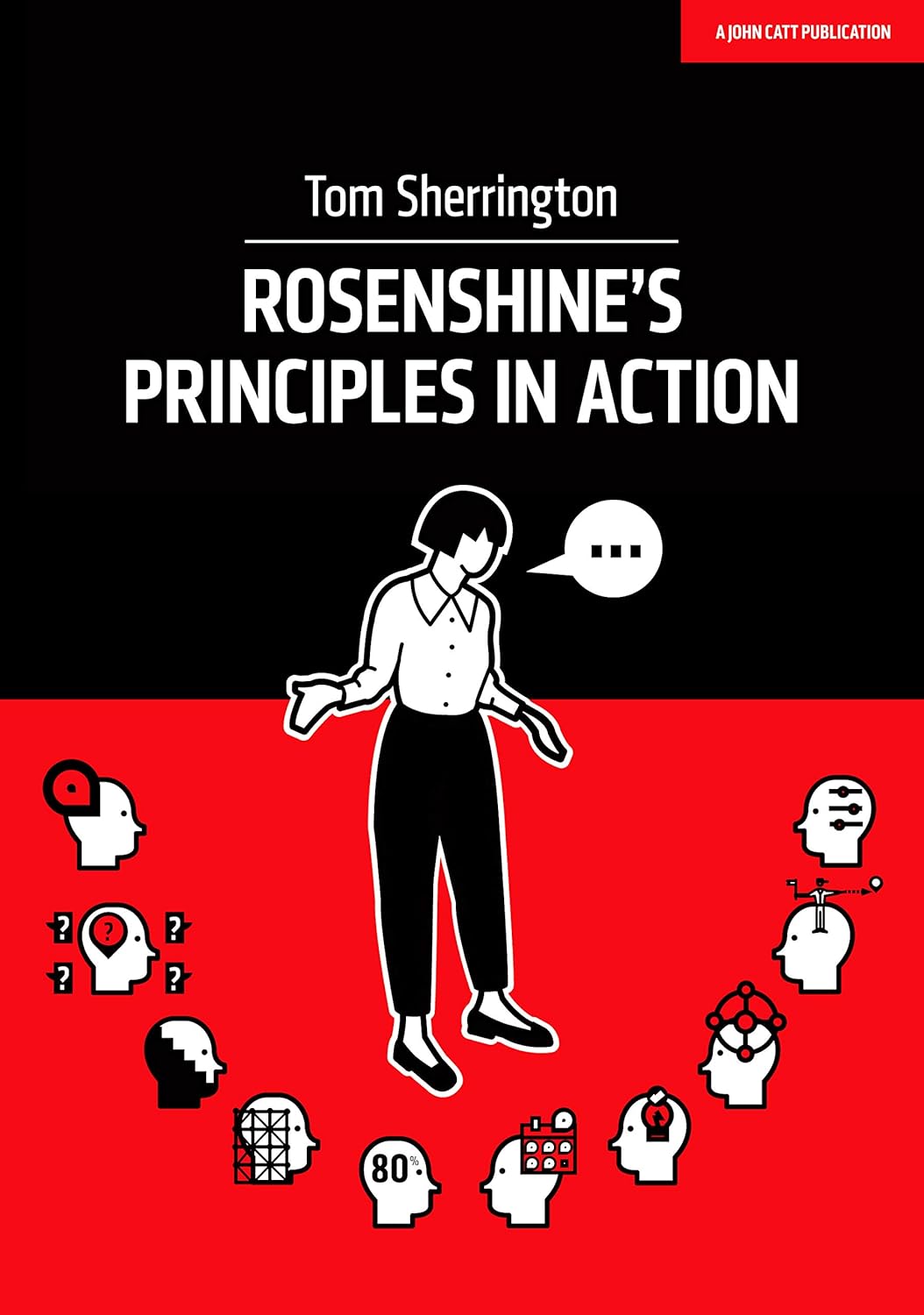About this deal
On the former, Sherrington thinks that trying to excavate all the evidence is asking a lot of teachers. They are time poor and they need to be able to trust that an academic is interpreting the research in a critical way on their behalf, he believes. Sherrington calls his second strand ‘questioning’ and writes that this strand concerns the following instructional procedures: Conceptual information enters the working memory from the teacher / lesson via the teacher grabbing the attention of the pupil. In many ways, this is the ultimate goal for teaching: to construct learning so that students are able to do challenging things by themselves without help.”
E]ffective questioning lies at the heart of great instructional teaching. … [I]t’s clear that this needs to be a highly interactive, dynamic, responsive process.’ (Sherrington, p. 27.)In the blog post discussed above, Sherrington writes that Rosenshine’s principles provides ‘the best, most clear and comprehensive guide to evidence-informed teaching there is’. Among the reasons Sherrington offers for why all teachers should read Rosenshine’s ‘Principles’ are that it ‘resonates for teachers of all subjects and contexts’, ‘because it focuses on aspects of teaching that are pretty much universal’, including‘questioning, practice [and] building knowledge’; it ‘makes direct links from research to practice’; it ‘does an excellent job in helping teachers to link practice to cognitive psychology’, through, for example, Rosenshine’s ‘references to ideas about memory and cognitive load theory’; and the research ‘is often based on linking classroom observations to student outcomes’. In the introduction to the pamphlet, you see the caution once more. The IAE editors explain that they “are aware that this booklet is based on research carried out primarily in economically advanced countries”. They suggest that it is still “likely to be generally applicable” but that “the principles should be assessed with reference to local conditions and adapted accordingly”. He was a high school history teacher originally but stopped actively teaching in 1963 to gain a PhD in Education at Stanford University. After completing his PhD he taught at Temple University for 2 years before moving to the University of Illinois. Two years after the IAE paper was published, Rosenshine published a further, revised edition of the paper; “ Principles of Instruction: Research-based Strategies that Teachers Should Know“. Objective: for students to feel safe offering answers of which they are unsure and not form a ‘habit of … “I don’t know” … as a get-out’.
When introducing a more difficult lesson, Rosenshine suggests employing Vygotskian scaffolding. Providing students with a framework that more easily allows them to make progress. But I have made up for it by publishing another 25 on the same areas, to try to get that message across that this should be about how you think about what you do, the evidence you use, the critique you use. “That list gives you probability statements, but what really matters is how you implement it.” Judging the transition from students being guided enough to becoming independent is a subtle skill, a central element of teacher expertise that develops with knowing the material, knowing how to break it down into practicable elements and, knowing the students.”
I’ve included Tom’s researchED talk about Rosenshine’s Principles of Instruction at the bottom of this article, it’s well worth watching. In the past two decades, ideas have crossed from academia into schools on a scale unimaginable in previous years. But it has proved to be a mixed blessing for academics.
Related:
 Great Deal
Great Deal 